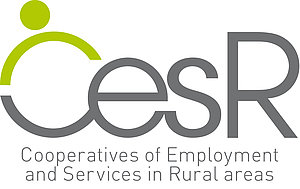


Cooperatives of Employment and Services in Rural Areas - CesR
Completed
Priority: Innovation and the Knowledge Economy
Thematic: Employment, Human Capital and Education
Lead Partner: Regional Committee for Tourism Development of Auvergne (FR)
Partner Countries: Latvia, Ireland, Czech Republic, Cyprus, Spain, Slovenia, Poland, France
This project idea was designed following 3 observations:
(1) Public authorities of rural areas have been developing various policies dedicated to the support of the self-catering accommodation sector during the last decades. The evaluation of these policies shows that their impact is positive in terms of heritage conservation, but disappointing regarding employment creation.
In fact, the accommodation owner and/or his family usually run this business alone, devoting very little time to this activity.
As a consequence, very few services are proposed to the customers, which results in a low quality of accommodation product.
(2) Employment in the services sector in rural areas is mostly precarious. It is difficult for people to live from their activity (walking or tourist guides, leisure activities supervision…).
(3) Rural public authorities encounter difficulties in providing services to the elderly or disabled population (on-demand transportation, personal care aid, on-demand catering…). Even if the demand is increasing due to the ageing of the rural population, it is still not enough to reach the critical mass which would allow employing people on a full time basis.
Besides, these services are costly for the public authorities, as they don’t balance this social orientation with other profitable business oriented activities.
Main objectives of the project:
- Based on the sharing of experiences, the project will identify good policies or instruments allowing rural public authorities to encourage jobs mutualization within the services sector (social services, tourist services…).
- Different solutions may be explored (“cooperative of employment” concept with public involvement, public-private partnerships, 100 % private investment…) as well as different fields of the rural context.
- In fact, the development of “cooperatives of employment and services” within the tourism sector could reinforce rural services which are already provided to the elderly or disabled local population by reaching a critical mass in terms of demand.
Main expected outputs and results:
- Identification and exploration of policies or instruments to be developed or transferred to reach the above mentioned objectives
- Creation of recommendations in this field targeting public stake holders

 Akadēmiskais centrs
Akadēmiskais centrs